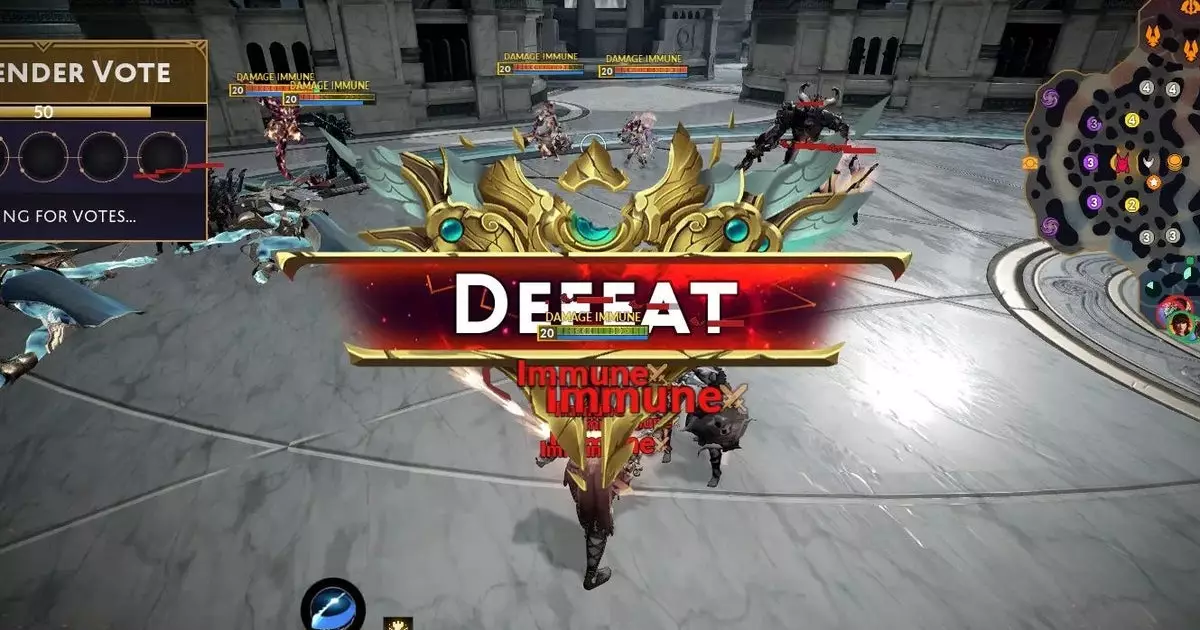The video game industry has seen tremendous growth over the years, but alongside this expansion, it has also faced turbulence, especially in terms of job security for developers. Recently, Hi-Rez Studios, known for its engaging titles, announced layoffs that have shaken the gaming community. This unfortunate news comes just one month after the free-to-play beta release of their much-anticipated sequel, Smite 2. The situation raises many questions about the stability and future direction of the studio and its array of popular games.
Reports indicate that Hi-Rez Studios has let go of a significant number of employees. While the exact figure remains undisclosed, estimates suggest that anywhere from 20 to 60 jobs have been axed. This ongoing trend of layoffs isn’t new for the studio; just four months prior, a similar situation unfolded, resulting in a loss of around 30 positions. The sheer frequency of these layoffs paints a grim picture for Hi-Rez and raises concerns regarding management’s strategic decisions in responding to market forces.
The layoffs have left long-standing games in a precarious state. Titles like Smite, Paladins, and Rogue Company will no longer receive updates, drastically changing the landscape for loyal players. Although the servers will remain operational, the absence of development teams signifies a troubling neglect for games that have cultivated a dedicated player base. This approach not only alienates current fans but also poses challenges for future revenue generation within those franchises.
Financial Strain and Strategic Focus
According to a message shared by Hi-Rez management, the layoffs are a response to “challenging market conditions.” While the intention behind workforce reduction aims to align team costs with revenues, the execution raises significant concerns. Management claims that this restructuring will allow for a focused development of Smite 2, directing resources to a game that they believe can thrive in a competitive market. Yet, one can’t help but wonder if this emphasis on a singular title, at the expense of others, is a sustainable strategy.
The decision to prioritize Smite 2 comes at a time when many players are skeptical about its potential to capture interest. Critics have compared it unfavorably to other emerging games, such as Valve’s Deadlock, which has already started making waves in the MOBA genre. By going all-in on a single project, Hi-Rez runs the risk of limiting their creative output and failing to address any potential declines in player interest.
Layoffs can have deep, lasting effects on the morale of the remaining employees. News of staff cuts often leads to uncertainty and low morale, making it difficult for teams to work cohesively. As Hi-Rez contemplates the future of Smite 2, they will also need to repair the damage inflicted on the morale of their remaining employees. The departure of the CEO from social media shortly after the layoffs suggests a need for retreat and reflection, but it raises questions about transparency and leadership amid crises.
Moreover, the broad range of roles affected—including programmers, artists, marketing personnel, and quality assurance staff—indicates that the scope of these layoffs was not restricted to a specific sector. This disarray could lead to a loss of institutional knowledge, further complicating the development process for any current projects.
Hi-Rez Studios’ predicament is indicative of a broader, more troubling trend within the gaming industry. Layoffs have become increasingly common across entertainment sectors, as companies reassess their financial strategies amid economic pressures. While there are occasionally waves of hiring fueled by new projects, many studios have faced harsh realities resulting in cuts to their workforce.
For players and industry veterans alike, the ongoing instability prompts questions about the future of game development. As beloved franchises fall under the shadow of neglect, the need for accountability in corporate decision-making becomes critical. Transparency in operations, alongside genuine communication with both employees and customers, could foster trust and loyalty that very few companies currently seem to prioritize.
While Hi-Rez Studios is navigating a challenging phase, the repercussions of their decisions will resonate throughout the gaming community. The fate of their flagship games hangs precariously in the balance, raising doubts about survival amidst a shifting industry landscape. As fans and employees alike brace for what lies ahead, it is undeniable that the need for strategic clarity and ethical governance in gaming has never been more pressing.

